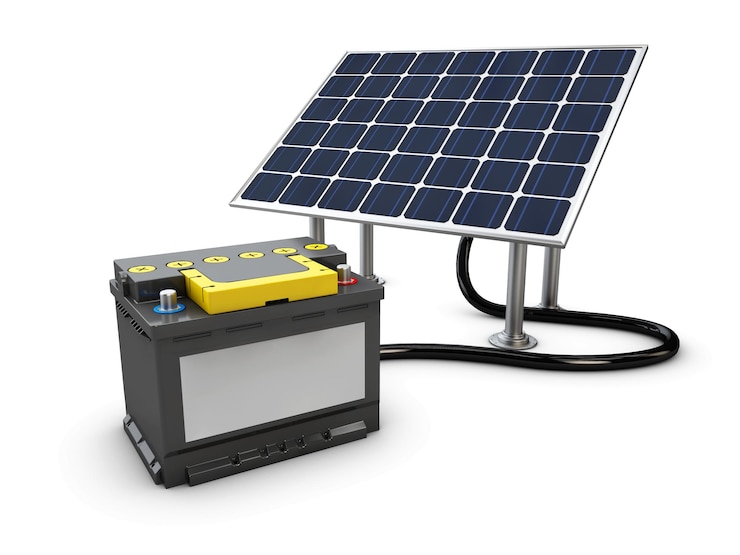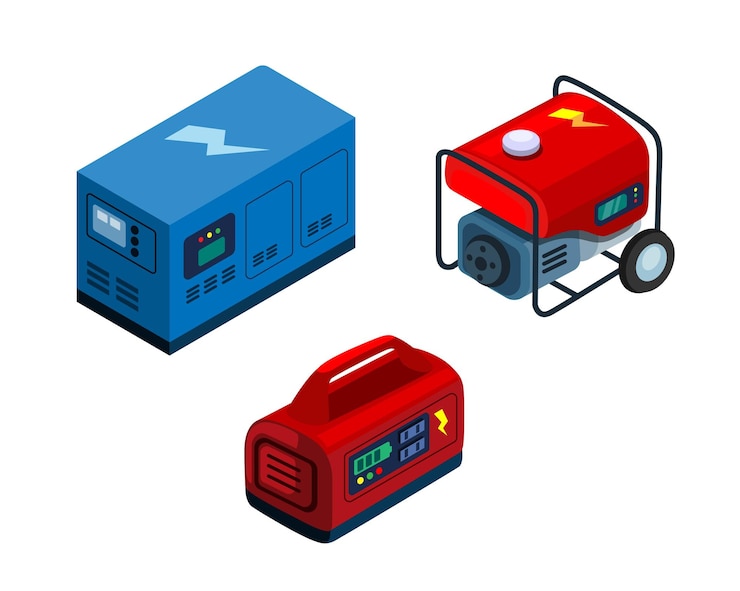I Have Solar Panels Why Is My Power Out?
You’re making a lot of your own power with those shiny solar panels on your roof. You almost don’t have to pay for electricity anymore, and you feel like an environmental hero. The power goes out one night when a storm blows down a big tree on your block. Does your fridge have to be on when the sun comes up in the morning? Most likely not.
If the power goes out and you have solar, you won’t have power either, unless you have a backup service. This is because the U.S. electrical code says that a solar system must be turned off quickly to protect rescue workers and keep dangerous backfeed current from going to power lines.
A solar inverter can disconnect your home from the grid, so you can keep your power on during a blackout. You may also need a generator or battery for longer-term power needs. With solar panels and batteries, you can make your own little island of a house where you can run important tools for days when the power goes out.
Find out more about how to keep your home going when the power goes out by reading our guide.
Why Don’t Solar Panels Work In A Blackout?

A grid-tied solar system means that the panels are linked to an inverter. This is what most people who have solar in their homes have.
The inverter is linked to the home’s main AC panel and to a smart electric meter that keeps track of both the electricity you use and the electricity your solar panels send back to the grid. Grid-tied solar systems don’t need any extra tools for backup batteries.
That’s why people who work with home solar often say, The grid is your battery. You send your neighbors extra energy from your solar system and get credit for it (this is called net metering). But when the sun goes down, you still need power from the utility company. If you do this just right, you might not have to pay much for electricity.
During a blackout, a normal grid-tied system has a special feature that turns it off automatically. This keeps the extra energy from being sent over power lines that might be damaged. It’s there to keep the queue workers safe when they go out to fix things when they break.
But that also means the sun’s power doesn’t reach your house. When the power goes out, the power from your solar panels doesn’t do anything unless you have a battery or some other way to disconnect your device from the grid.
How Can You Use Solar Power To Survive A Power Outage?
There are a few things you can do to keep your home going when the power goes out:
- Off-grid solar systems
- Add solar batteries.
- Use a backup gas generator.
- Make use of a solar-powered generator.
- A Sunny Boy or Enphase Ensemble device should be used instead of your inverter.
Off-grid Solar Systems
When you use off-grid solar, you need to make sure you have enough batteries to store enough power to get you through the night and on cloudy days. This often makes it cost a lot more than solar systems that are connected to the power grid. Most houses and businesses shouldn’t spend money on off-grid solar. Besides, you won’t be able to use power from the grid if your solar system isn’t making enough or if you run out of energy stored in your batteries. Power Line Downed
You can use your solar system even when the power goes out, so it does give you full energy freedom. Off-grid solar is a good choice for places that are far away from the power grid and can’t connect to it. If you have a cabin that is very far away, an off-grid setup might be worth it.
Add Solar Batteries To Your System

A grid-tied system is often the better option for those looking to save money with solar panels. You can also still get backup power when the grid is down if you install an energy storage system. Because you don’t need as many batteries as an off-grid system, it likely won’t be as expensive.
You can store any extra power your solar system generates by installing one or more solar batteries. You’ll then be able to draw on that power without putting utility workers in danger in the event that the electricity grid goes down.
If a battery backup system sounds like something you’d like to have, it’s important to understand the limitations. Though solar batteries are becoming more and more commonplace, they are still quite expensive for most homes and businesses. They can substantially drive up the cost of your solar system. As a general rule of thumb, one 9.8 kWh battery might cost around $15,000 (with installation) before incentives.
Because of this, many solar installers will advise you to select just a few necessary items for which you want to provide power. These could be things like emergency lighting, medical equipment, refrigerators, or personal electronics/chargers. Installing enough batteries to keep your home or business running like usual over a couple of days will likely cost more than most people are willing to spend. Get to know how many solar batteries to power a house.
Backup Gas Generator
A backup generator is often a cheaper choice than a battery system if you need backup power but don’t want to spend the money on one. You can keep your home or business running for a few hundred or a few thousand dollars at the hardware shop near you. Fuels like coal and oil are often used in these engines, though. Fossil fuels are not only not renewable, but they can also be hard to find in times of disaster or emergency.
Use A Solar-Powered Generator

Explanation: Think of a solar-powered generator as a clean and green power station. It uses energy from the sun to generate electricity, and you can use it to keep your essential devices running smoothly during power outages.
Benefits: environmentally friendly, silent operation, and can be a great backup during emergencies.
Final Thoughts
While solar panels empower you to generate your own electricity and reduce reliance on the grid, it’s crucial to understand their limitations during power outages. Grid-tied systems, common in most homes, are automatically shut down for safety reasons.
To navigate outages, consider options like solar batteries, backup generators, or solar-powered generators. Upgrading your inverter system with advanced models like Sunny Boy or Enphase Ensemble enhances reliability. Each solution has its benefits and costs, so choose wisely based on your needs and circumstances, ensuring your home stays resilient even when the power momentarily fades away.
Contact your local solar provider today!
Solar Earth Inc., with expertise and certifications, empowers your home for enhanced energy generation. Contact us today to transform your home into a sustainable, long-term renewable energy source.
